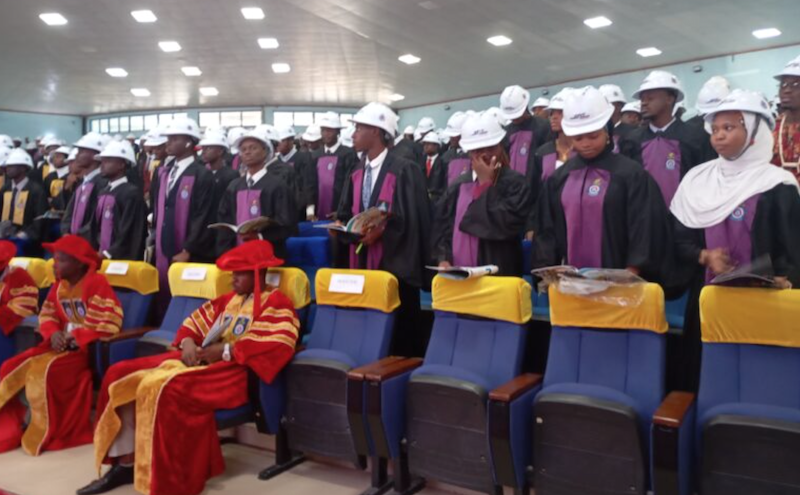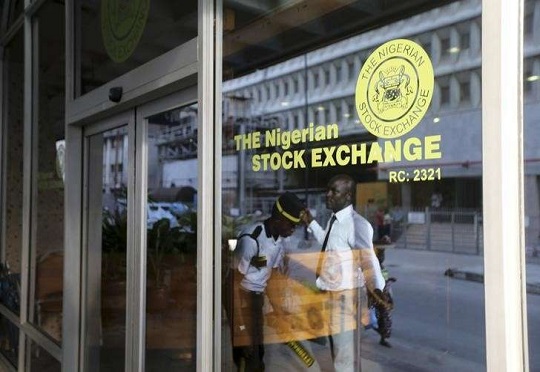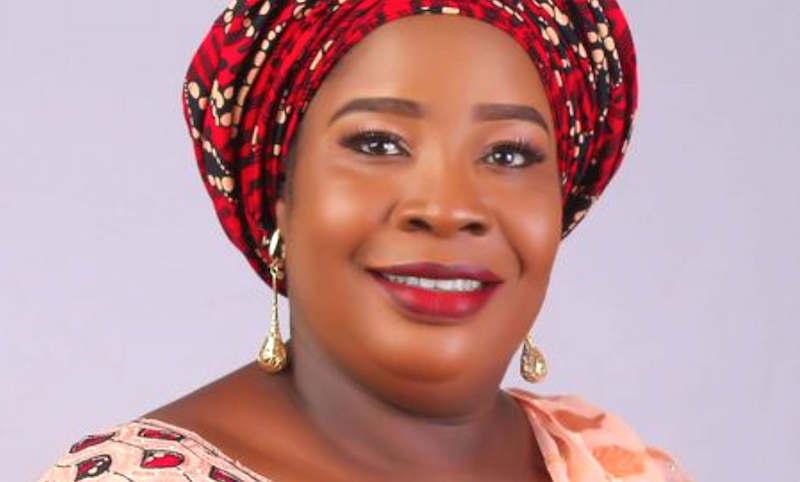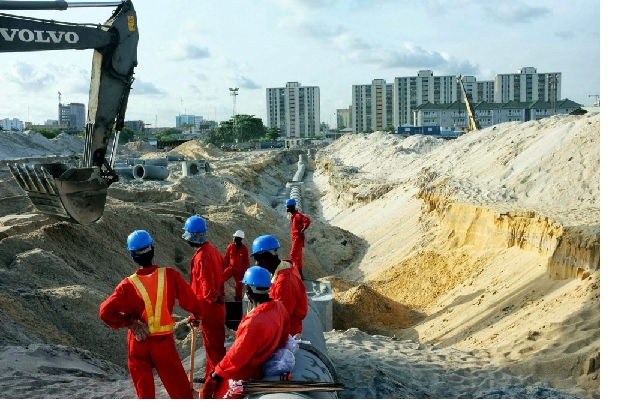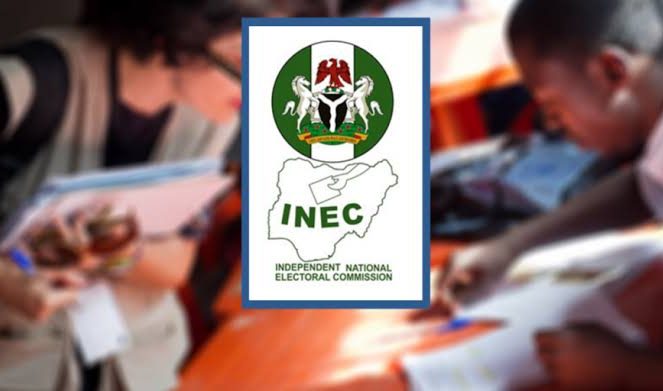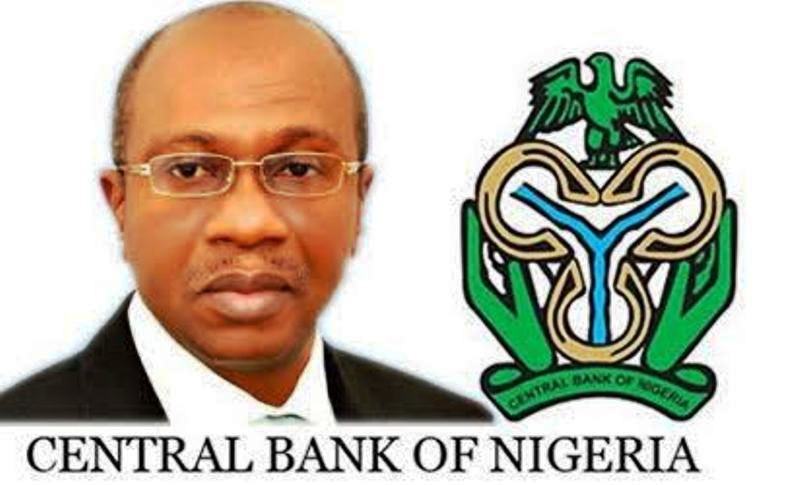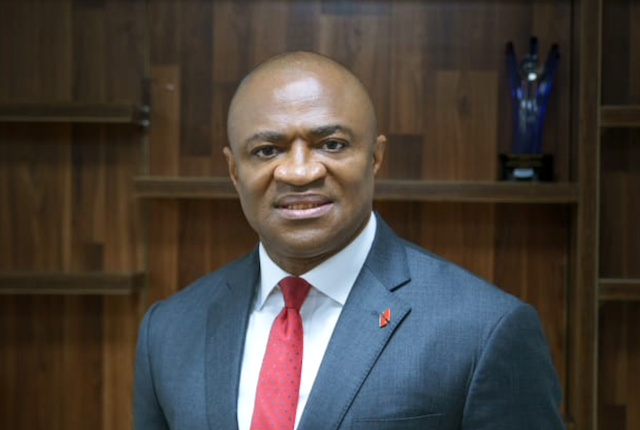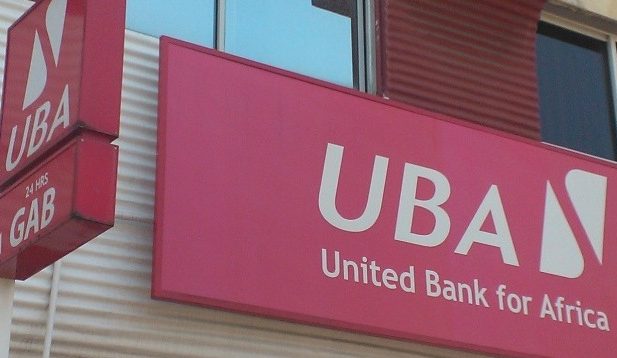The Nigerian Society of Engineers (NSE), on Saturday inducted no fewer than 400 graduate Engineers of the Class 2024 of the Air Force Institute of Technology (AFIT), Kaduna.
The induction marked a significant milestone in the careers of the graduate engineers. They were formally inducted into the engineering profession by the society and Council for the Regulation of Engineering in Nigeria (COREN).
The inductees graduated from the Departments of Aerospace, Automotive, Mechanical, Mechatronics, Metallurgical and Materials Engineering.
Others included: Electrical and Electronics, Civil and Environmental Engineering, Information and Communication Technology as well as Telecommunications Engineering.
In his address, Prof. Auwal Kasim, Provost of the AFIT, charged the graduates to exhibit professional competence, due diligence, and moral ethics in their practice.
Represented by the provost, the Commandant of AFIT , AVM Sani Rabe, highlighted its achievements and its commitment to producing well-rounded engineers.
He said that the institute has grown significantly since its establishment 40 years ago, with five Faculties offering 22 NUC-accredited programmes, a postgraduate school, and two Faculties offering NBTE-accredited programs.
Rabe emphasised the importance of professional ethics, urging the graduate engineers to uphold the highest standards of integrity, honesty, and responsibility in their practice.
He also encouraged them to remain committed to lifelong learning, staying abreast of the latest developments and advancements in their field.
The commandant reiterated AFIT’s openness to collaborations with stakeholders, such as the NSE and COREN, to make its engineering programmes globally relevant and competitive.
He also stated that the institute was committed to producing unique, adequately prepared, and skilled graduates who can make a positive impact in their communities and the nation at large.
Earlier, the President of NSE, Mrs Margaret Oguntala, urged the graduate engineers to uphold the ethics of engineering profession wherever they may find themselves.
The president was represented by the Chairman, NSE, Kaduna state branch , Mr Abubakar Jumare.
Oguntala charged them to be good ambassadors of AFIT and the engineering profession.
Also the President of COREN, Prof. Sadiq Abubakar, reiterated its commitment to enhancing engineering education in Nigeria.
Abubakar emphasised the importance of quality engineering education in driving Nigeria’s economic growth and development.
“With the establishment of committees and partnerships with stakeholders, COREN is well on its way to ensuring that engineering education in Nigeria meets global standards, “he said.
The induction ceremony was attended by dignitaries from the Nigerian Air Force, the NSE, COREN, and other stakeholders in the engineering profession.
